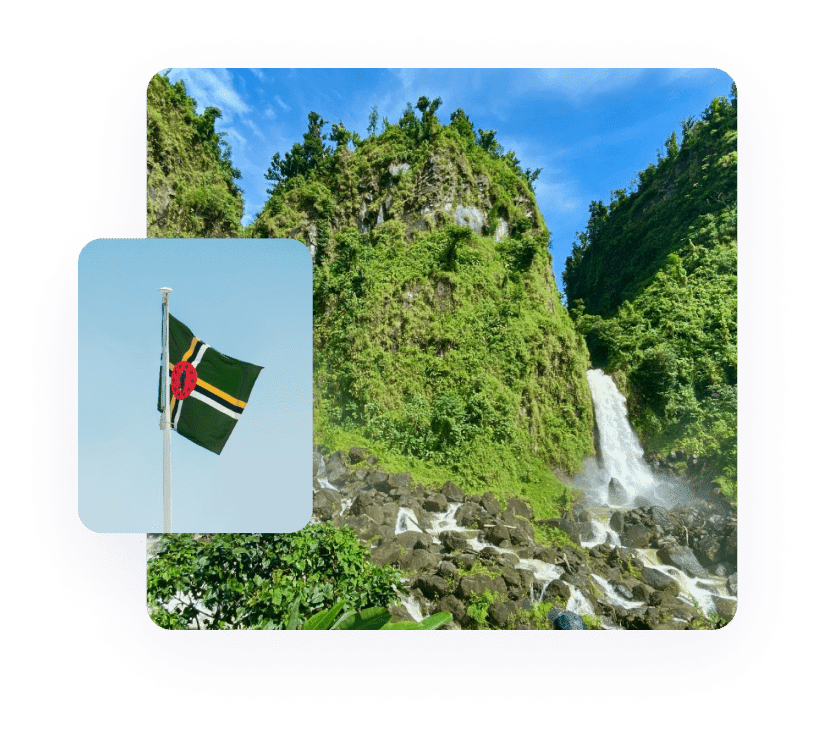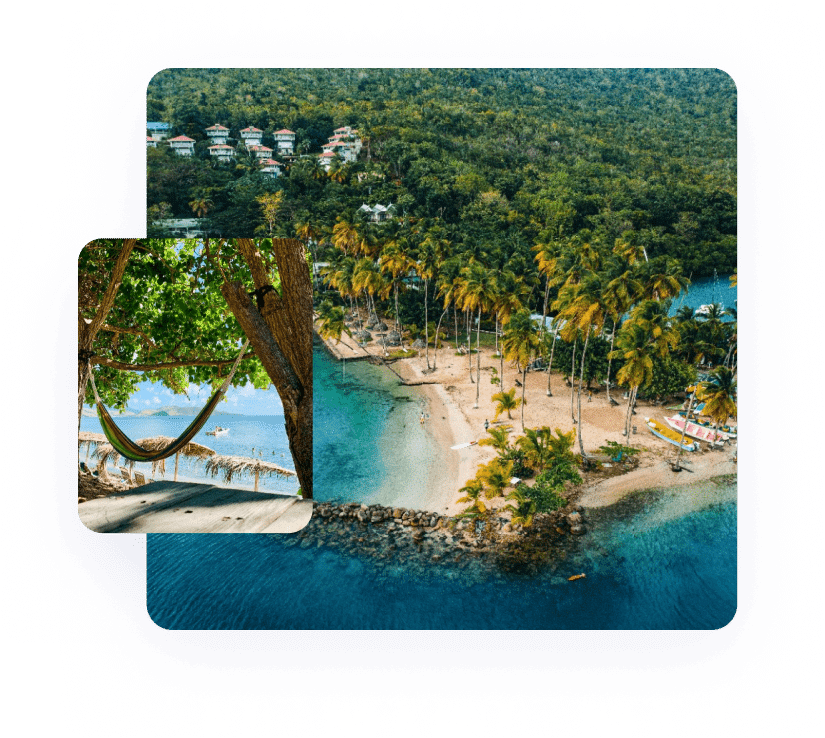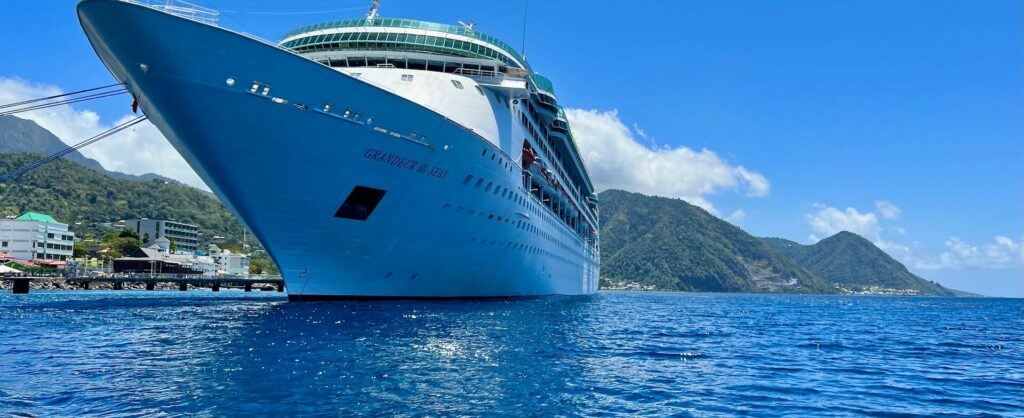The Caribbean is a region known for its diverse cultural landscape, breathtaking natural beauty, and rich history. There are many appealing aspects of the Caribbean – its tropical climate, relaxed pace of life, and citizenship by investment programs, to name a few – that attract digital nomads, families, retirees, travelers, and investors from all over the world. One of the most attractive aspects for many, however, is the beneficial tax environment.
In this article, we’ll explore why the Caribbean is a compelling option for those looking to enjoy attractive benefits by working through a list of the top ten Caribbean tax havens.
What is a tax haven?
Simply put, a tax haven is a jurisdiction or country that offers foreign individuals and/or businesses favorable tax benefits and financial incentives (and often little to no tax liabilities) in a politically and economically stable environment. The typical characteristics of a tax haven include low or no income tax, minimal reporting requirements, and strict privacy laws.
Tax havens also offer offshore banking services, asset protection, and company formation, which can be useful for wealth management and tax planning. While companies and wealthy individuals can use a tax haven for legitimate reasons, such as international business transactions, tax havens have been criticized for facilitating illicit financial activities, such as tax avoidance and money laundering. To help combat such activities, the Tax Justice Network maintains a Corporate Tax Haven Index that tracks these jurisdictions.
The Caribbean is home to some of the most popular tax havens in the world, where high-net-worth individuals and companies can benefit from low tax liability and financial privacy. The Bahamas, Panama, and the Cayman Islands are among the Caribbean’s most popular tax haven islands.
In this next section, we’ll take a look at the top ten tax havens in the Caribbean.
Top Caribbean Tax Havens
Anguilla

Anguilla is a British Overseas Territory made up of a small main island and various offshore islets. Known for its luxurious resorts, tranquil atmosphere, and unspoiled landscape of beautiful beaches and turquoise waters. Over the years, it has also earned a reputation as a respected tax haven.
Anguilla is considered a pure tax haven as it does not levy certain taxes on individuals and companies. The following tax benefits can be enjoyed in Anguilla:
- No personal income taxes or capital gains taxes, wealth, real estate, or inheritance tax
- No stamp duty for offshore entities incorporated in Anguilla
The financial legislation in Anguilla protects the privacy of offshore bank accounts and business entities. For example, the Offshore Banking Act of 2005 restricts bank employees and agents from disclosing an account holder’s financial information without their consent. There are also no exchange controls related to monetary or asset transfers.
You can qualify for tax residency in Anguilla through one of its residency schemes. There are two residency by investment schemes offered in Anguilla: The Residency by Investment Program and the High-Value Resident Program. The former involves investing $750,000 in real estate on the island or making a one-time gift of $150,000 – per application – to Anguilla’s Capital Development Fund, which supports public sector initiatives.
The latter option, the High-Value Resident Program, requires you to own property worth at least $400,000 and pay $75,000 in annual income taxes to the Anguilla Treasury.
The Bahamas
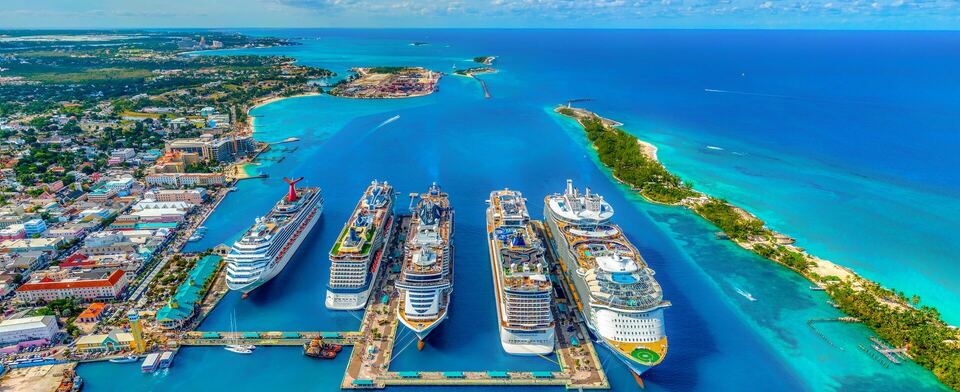
The Commonwealth of the Bahamas is an archipelago of islands in the Atlantic Ocean. This tropical paradise offers an excellent blend of relaxation and adventure thanks to its welcoming culture, underwater wonders, pristine beaches, vibrant traditions, and laidback lifestyle.
In the 1990s, the Bahamas passed legislation allowing the incorporation of offshore corporations and international business companies (IBCs). It provides services including offshore banking, registration of offshore companies, registration of ships, and offshore trust management. Today, the Bahamas is still a preferred tax haven for residents of the United States and European countries.
The tax benefits offered in the Bahamas include the following:
- No income tax, capital gains tax, or inheritance taxes paid in the country
- No taxes on wealth or dividends
To become a resident of the Bahamas, you have two options under its Residency by Investment Program:
- Invest at least $750,000 in a local business
- Invest at least $750,000 in real estate
It is important to note that the government has not specified a minimum investment amount. However, the Department of Immigration’s official site states that purchasing a residential property valued at $750,000 or more will result in a speedy consideration of your application. You must spend at least 90 days in the country each year and can apply for naturalization after ten years of residency.
Calculate the cost of citizenship for you and your family, including all associated fees.
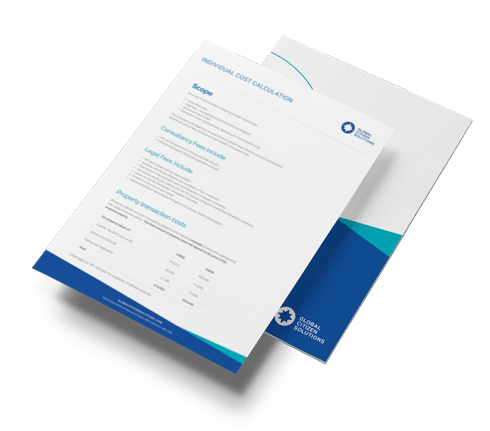
Barbados
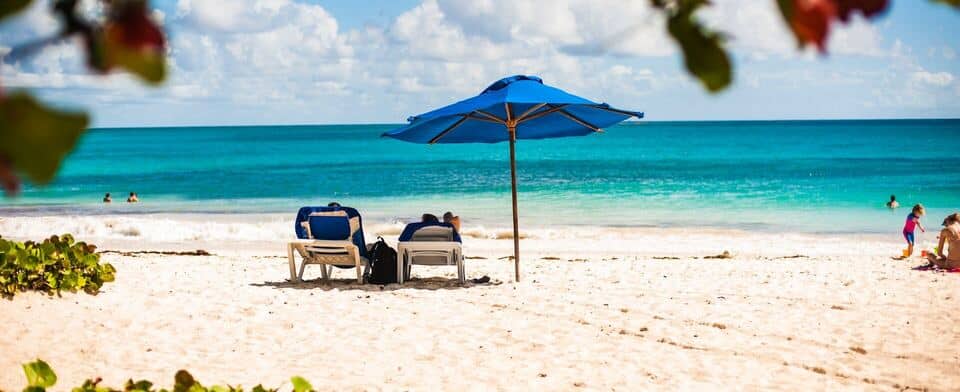
Barbados is an island country in the Lesser Antilles of the West Indies known for its vibrant culture, hospitality, and stunning beaches. Water sports enthusiasts flock to the island’s shores each year to soak up the sun and get their fill of adventure.
While Barbados is not a pure tax haven, it has a very low-tax environment for offshore corporations incorporated in the country. For example, the tax rates on profits earned by offshore companies generally range from zero percent to 5.5 percent, and the tax rate decreases as the profits earned increase. Additionally, offshore companies are able to import the required machinery or business equipment without having to pay import duty.
Further benefits include the fact that there are no withholding taxes or capital gains taxes in Barbados, and the country has double taxation treaties with several other countries, such as Canada and the US (unlike Caribbean tax havens).
For individuals to be considered tax residents in the Bahamas, they must spend at least 183 days in the country, have a permanent home, and have economic ties to it.
Belize
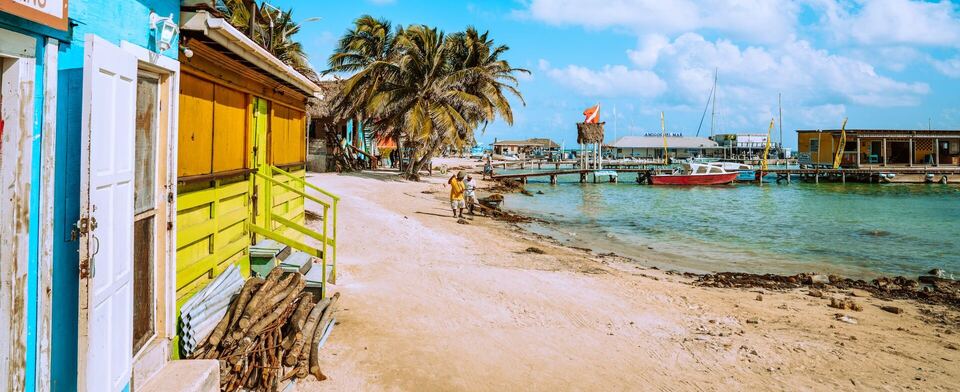
Belize is a Central American country bordered on its east side by the Caribbean Sea. Its Caribbean coastline is a favorite among nature enthusiasts and explorers looking to surround themselves with its vibrant coral reefs, lush rainforests, and beautiful wildlife. The country also offers opportunities for snorkeling and diving, while its rich cultural heritage and Mayan ruins keep its history in sight.
In Belize, you can enjoy the following tax benefits:
- Offshore banking, easy incorporation of offshore companies, or the formation of trusts or foundations
- Tax exemptions on foreign income earned by offshore businesses incorporated in the country
- No stamp duty for companies and trusts incorporated in Belize
- No taxes on income, nor repatriation or capital gains taxes for offshore bank accounts
Belize has strict banking legislation to guarantee financial privacy and even has tax treaties with several foreign governments.
The immigration restrictions in Belize are generally quite flexible, particularly for retirees. Those older than 45 can apply for the Retired Residency Visa by proving they earn at least $2,000 each month. Dependents under the age of 23 can be included in the visa, and after five years of permanent residence, they can apply for citizenship.
The British Virgin Islands

The British Virgin Islands (BVI) are an archipelago in the Caribbean Sea that consist of the main islands of Tortola, Virgin Gorda, Anegada, and Jost Van Dyke, and over 50 other small islands and cays. The territory is known for its white sand beaches, crystal-clear waters, tranquil environment, and natural beauty. If you’re looking to enjoy water sports or spend time soaking up the sun on the beach, then this is definitely the destination for you.
The British Virgin Islands are one of the Caribbean’s most popular tax havens. The British Virgin Islands are ideal for establishing an offshore bank account, as the country does not levy any taxes on offshore accounts and has no tax treaties with other nations, which helps protect account holders’ financial privacy.
The tax advantages of living here include the following:
- Residents don’t pay taxes on earnings, investment returns, and wealth accumulation
- No capital gains, wealth, inheritance, or income taxes
- No exchange controls for offshore banking customers and offshore companies incorporated here
- No taxes on offshore companies
- BVI IBCs don’t pay taxes on profits or capital gains generated from outside of the BVI
The British Virgin Islands offer annual resident permits for those who wish to stay in the territory. For example, the Residence without Work Permit enables a one-year stay with limitations on work. However, you can manage personal assets. The self-employed category of the permit allows you to manage your own business on the islands.
The Cayman Islands
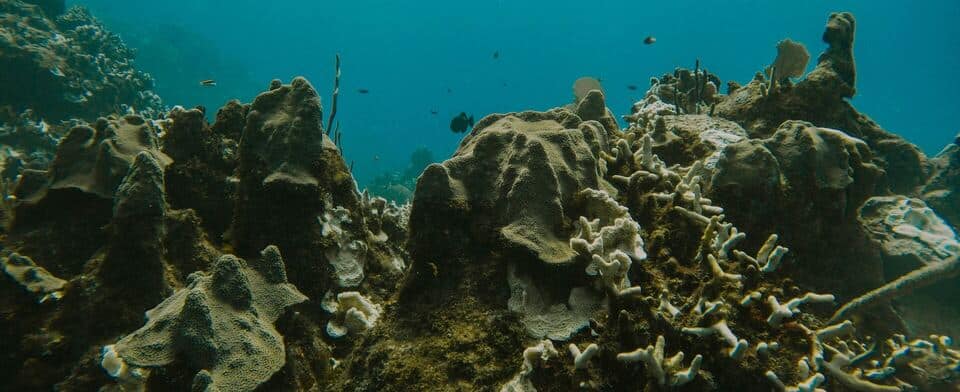
A British Overseas Territory in the Caribbean Sea, the Cayman Islands is a territory comprised of three islands: Grand Cayman, Cayman Brac, and Little Cayman. The territory is known for its beautiful beaches, clear waters, vibrant marine life, water sports, luxury resorts, and welcoming atmosphere.
Tourists enjoy the quality relaxation available on the Cayman Islands, while companies and high-net-worth individuals choose it for their business ventures. This is because the Cayman Islands offer a robust financial sector, favorable tax policies, and well-developed infrastructure.
Those looking to decrease their tax liability can enjoy the following benefits:
- No income tax imposed on individuals
- No capital gains tax, inheritance tax, gift tax, or wealth tax
- No corporate taxes
As you can see, residents can enjoy tax-free earnings in the Cayman Islands while also being able to keep more of their income, thanks to the lack of inheritance, wealth, and capital gains taxes. The lack of corporate tax is an attractive aspect for many companies, particularly those that conduct international business activities.
In addition to this, the Cayman Islands is considered one of the five largest offshore financial centers in the world. You can make use of services including offshore banking, offshore trusts, and the incorporation of offshore companies.
The Caymans have developed strict banking laws designed to protect banking privacy. For example, offshore corporations here do not have to submit financial reports to any government authority in the territory. These excellent tax incentives and the territory’s strong legal framework and financial infrastructure continue to ensure its reputation as a top offshore tax haven.
Wondering how to obtain residency in the Cayman Islands? The most common route among expats is through the Person of Independent Means permit. To qualify, you must have an annual income of around $150,000 from outside the Cayman Islands, maintain a local bank account with around $500,000, and invest $1,200,000 in the country. Part of this investment, at least $610,000, must be directed toward real estate investment.
Costa Rica
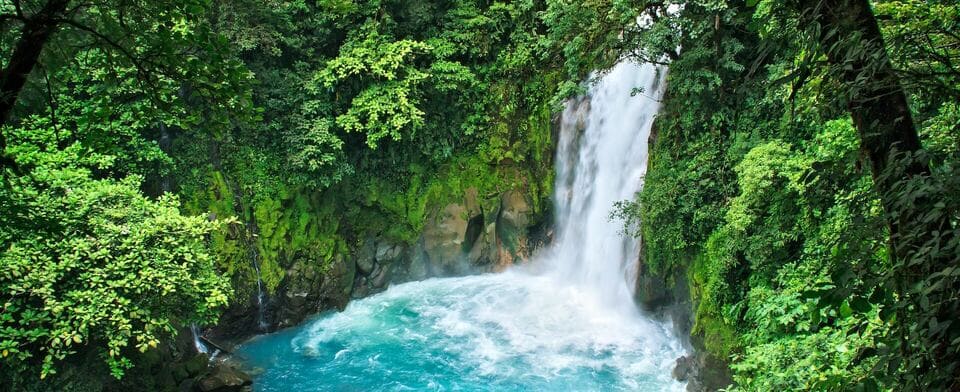
Costa Rica offers lush rainforests, eye-catching volcanoes, beautiful beaches, and unmatched ecological diversity. Of course, visitors and inhabitants can’t help but take advantage of the various outdoor activities and sustainable ecotourism initiatives offered by this gorgeous country.
In addition to being a haven for nature enthusiasts, Costa Rica is also considered a tax haven (although not a pure tax haven). Its various tax incentives have been highly successful in attracting some of the world’s largest corporations, resulting in the country being recognized as tax-friendly enough to be referred to as the Switzerland of Central America.
The following tax benefits can be enjoyed in Costa Rica:
- Companies incorporated in Costa Rica can conduct business domestically and internationally.
- Revenue generated by companies operating solely outside the jurisdiction is not subject to local taxes.
- Many companies enjoy eight-year tax exemptions
- Corporations subject to taxes pay very low rates and are generally exempt from taxes on capital gains, interest, and dividend income
From these advantages, it’s easy to see why Costa Rica is popular for offshore bank accounts, low real estate taxes and corporate tax, and generally low tax liability. In addition to this, the legislation does not require offshore companies to submit financial reports to the local tax authorities, and privacy is ensured.
You can obtain tax residency in Costa Rica through one of the following routes:
- Marriage
- Company formation
- Pensioner Visa/Pensionado Visa ($1,000 monthly income requirement)
- Person of Independent Means Visa/Rentista Visa ($2,500 monthly income requirement)
- Residency through the Investor Visa ($150,000 real estate investment or bank deposit)
Dominica

The Commonwealth of Dominica is a beautiful island located in the Eastern Caribbean Sea known for its low cost of living, untouched natural landscape, rich cultural heritage, and welcoming atmosphere. Legislation on the island enables the creation of offshore corporations, trusts, and foundations and provides tax-friendly and privacy-protected offshore banking services.
You can enjoy the following benefits in this pure tax haven:
- No income taxes, corporate taxes, withholding taxes, or estate taxes, including inheritance taxes or gift taxes
- No capital gains tax on income earned abroad
- Offshore companies and trusts don’t pay stamp duty on asset transfers
- No tax on interest earned on offshore bank accounts
Dominica does not share information on offshore account holders with tax authorities of any other country, and its asset protection and financial privacy laws are very strict. This, along with its low personal and corporate tax rates, makes it one of the Caribbean’s popular tax havens for reducing tax liability. To obtain tax residency in Dominica, you must spend at least 183 days in the country during a tax year, establish a permanent home there, and show that you intend to live there long-term.
Dominica also offers a Citizenship by Investment Program that allows foreign investors to obtain citizenship in just two to three months and enjoy the country’s tax benefits. To learn more, check out our Ultimate Guide to Dominica Citizenship by Investment.
Panama

The Republic of Panama is a country located in Central America. Known for its natural wonders, such as the Panama Canal, the country is a fascinating blend of natural and urban landscapes. You can spend your days on the beautiful beaches and hike through the tropical rainforests, explore the colorful streets, and take in the country’s rich history and cultural heritage.
One of the Caribbean’s very secure pure tax havens, Panama offers the following tax benefits:
- Offshore companies can conduct their business operations domestically and internationally
- Offshore Panamanian companies and their owners do not pay income taxes, corporate taxes, or local taxes
- Foreign income generated outside the country is generally tax-exempt
- Only income earned within Panama is subject to tax
In addition to the above, Panama has strict banking secrecy laws that protect the privacy of account holders, 15 tax treaties, and no exchange control laws.
There are three ways to obtain residency in Panama: An investment-based residence visa, a retirement visa, and the Friendly Nations Visa. You can apply for citizenship by naturalization once you have been a permanent resident of Panama for five years.
Saint Kitts and Nevis

The Federation of St Kitts and Nevis is a stunning dual-island nestled in the Leeward Islands of the Caribbean. The nation offers an idyllic escape for those looking to relax on a sandy beach, soak up the sun, enjoy a variety of watersports, and embrace its vibrant and diverse cultural landscape.
The following tax benefits can be enjoyed here:
- Tax-friendly formation of offshore limited liability companies (LLCs), trusts, and foundations
- Financial privacy, as information regarding owners and directors of offshore companies is not made public.
- Incorporation of a company only requires three directors and one shareholder (who can also be a director), which makes for a streamlined process.
- St Kitts and Nevis Trusts do not pay stamp duty on transactions.
- Local taxes are not levied on income earned outside of the jurisdiction.
- Offshore companies and their owners do not pay withholding taxes, capital gains taxes, or estate taxes.
- There are no exchange controls or taxation treaties with other countries.
- To become a tax resident in St Kitts and Nevis, you must spend at least 183 days in the country during a year (much like Dominica). You will also need to demonstrate economic ties to the country, such as owning a property, having a local job, or having a local business.
St Kitts and Nevis, as one of five Caribbean countries that offer citizenship by investment programs, is one of the best tax-free Caribbean islands you can easily move to at its citizenship program is fast and accessible. Foreign investors can obtain citizenship in just four months by investing at least $400,000 in the country’s economy. You can read more in our guide to the St Kitts and Nevis Citizenship by Investment Program.
As you can see, the Caribbean stands out as a prominent region for tax havens, offering a strategic and attractive environment for individuals and businesses seeking to optimize their financial positions and tax liabilities. The allure of low or zero taxation, strict financial privacy laws, and a generally stable economic and political climate has positioned several Caribbean nations as top choices for those looking to minimize their tax liabilities. While these Caribbean tax havens provide significant advantages, it is crucial for individuals and businesses to navigate this intricate landscape of international tax laws responsibly and transparently to ensure longevity and financial freedom.
Why work with Global Citizen Solutions?
- Global approach by local experts. We are corporate members of the Investment Migration Council, with local expertise in all five Caribbean citizenship programs.
- 100 percent approval rate. We have never had a case rejected and will offer you an initial free-of-charge due diligence assessment before signing any contract.
- Independent service and full transparency. We will present to you all the investment options available, and all expenses will be discussed in advance, with no hidden fees.
- An all-encompassing solution. A multidisciplinary team of immigration lawyers, investment specialists, and tax experts will take into consideration all your and your family's mobility, tax, and lifestyle needs.
- Confidential service and secure data management. All private data is stored within a GDPR-compliant database on a secure SSL-encrypted server.
Get in touch with a Caribbean Citizenship by Investment specialist
Frequently Asked Questions about the Top Caribbean Tax Havens
Tax havens in the Caribbean are islands or countries where individuals and companies can enjoy low taxes and residency requirements. They also tend to offer offshore banking services.
Several Caribbean countries are considered tax havens because of their favorable tax environments, including Anguilla, the Bahamas, Barbados, the British Virgin Islands, the Cayman Islands, Dominica, and Nevis.
There are many reasons that an individual or company may choose to use a tax haven, such as lower tax rates, which allow them to reduce their tax liability. Tax havens also tend to have privacy laws that appeal to individuals and companies.
Tax havens are sovereign jurisdictions that have their own laws and regulations, which make them legal. The difficulty comes when individuals and corporations use tax havens for illegal activities, such as tax evasion, which violate the laws of both the home country and the tax haven.
Yes, it is possible to use a Caribbean tax haven for legal tax planning. It could be beneficial to consult with a professional who is familiar with the laws of your chosen haven and the country in which you are a tax resident to ensure that you do not violate any laws in either jurisdiction.
While tax havens have faced much scrutiny and international pressure over the years, no major reforms are currently expected. There are organizations such as the Tax Justice Network and the Global Alliance that monitor tax havens and work to prevent tax abuse.


